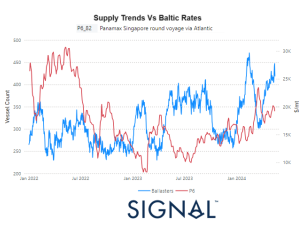The European Union reached a provisional deal to support its clean-tech industry as it seeks to fend off global challenges from the US and China.
Lawmakers and member states agreed to speed up permitting and change the way auctions for new renewables projects are conducted to help support the sector as part of the Net Zero Industry Act. The objective of the law is to manufacture 40% of the bloc’s clean-tech needs within the EU.
The plan was put forward last year as a direct response to the US Inflation Reduction Act, a package of tax credits aimed at spurring billions of dollars in new investment in clean technologies. It’s also hopes to stop Chinese manufacturers from simply undercutting their European peers on price.
“In the context of anti-competitive practices and massive subsidies from China and the United States, NZIA is, in short, a European answer for our industries to succeed in reaching our climate goals without undermining their competitiveness,” said Christophe Grudler, a negotiator from the liberal Renew group. “The age of innocence is over.”
However, there are concerns the EU has put no fresh money behind the plan. The deal promotes key technologies the bloc will focus on supporting, including wind, solar, green hydrogen, energy storage and nuclear.
So-called pre-qualification criteria, weighting non-cost factors like environmental sustainability criteria of wind and solar projects, will have to apply to at least 30% of the renewables volume auctioned every year per member state. That’s short of the total coverage called for by industry groups like WindEurope.
The European Parliament, as well as the bloc’s 27 member states, need to sign off on the final deal before it becomes law.









